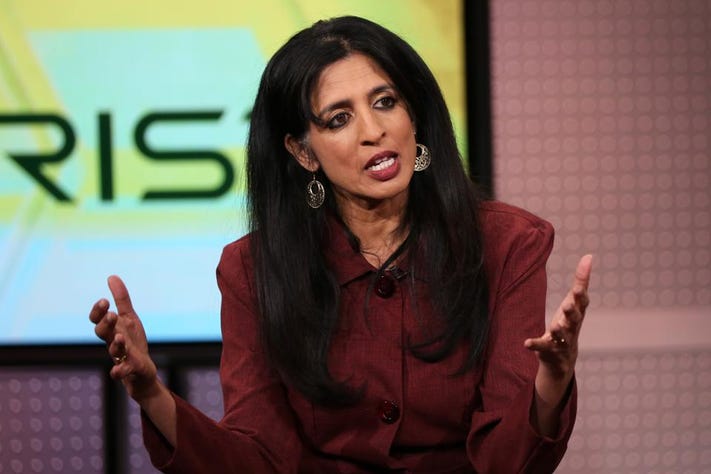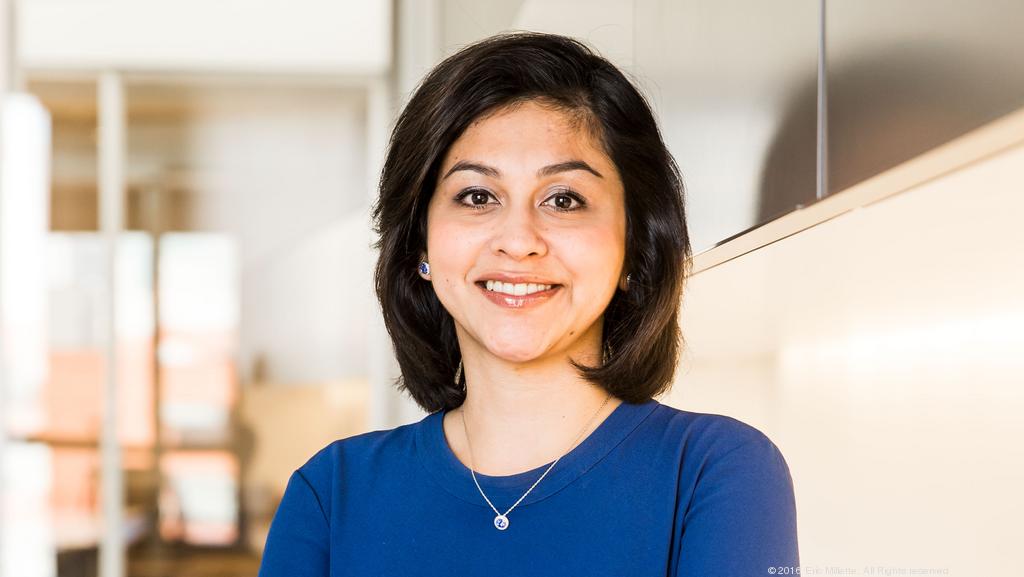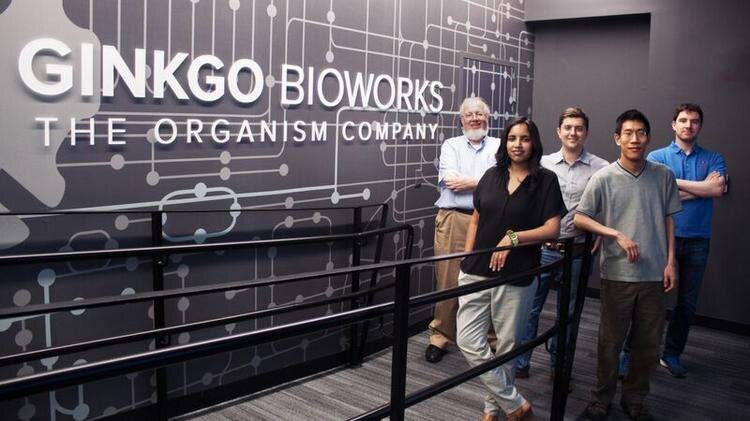(October 28, 2021) Jayshree Ullal has many monikers to her credit; Queen of the wired world is just one of them. She is not just another Indian name that has made it big in the global corporate world. According to Forbes, Ullal is counted amongst the top five influential people in the world of networking and has been giving technology behemoths a run for their money. This year, 60-year-old Ullal, was one of the five Indian Americans to be named in Forbes’ list of America’s Richest Self-Made Women with a net worth of $1.7 billion.
The president and CEO of Arista Networks, who is known for her business chops, helped transform the cloud computing firm into a world leader in networking technology. In fact, her acumen and skills have earned her several awards and recognitions. She was named one of the Top Ten Executives by VM World, A Woman of Influence for Security CSOs, Innovator and Influencer Award by Information Week, was ranked number 2 in Top 25 Disruptors of 2014 by CRN, World’s Best CEOs: Growth Leaders in 2018 and was also ranked 118 on Fortune’s Businessperson of the Year for 2019.

Indian roots
Born in London and raised in Delhi, Ullal studied at the Convent of Jesus & Mary before her family relocated to the US when her physicist father got a new job. She eventually attended San Francisco State University where she did her Bachelors in Electrical Engineering and then her Masters in Engineering Management from Santa Clara University. In college she was only one of two female students in a batch of 70. Which she says is a sign that more women need to be encouraged into technical education.
She began her career at Fairchild and eventually moved to AMD before joining Crescendo, a communications company, which was later taken over by Cisco. Ullal, too, was brought on board by Cisco on a two-year contract, which thanks to her skills lasted for a good 15 years. According to an interview she gave Business Line, Ullal said, that she with the support of her CEO and boss was able to grow the switching business from zero to a more than $10-billion business in a decade. The startup spirit within such a large company was what excited Ullal and soon she was appointed a senior executive at Cisco. Incidentally, the switching business turned out to be a cash cow which brought in a third of Cisco’s revenue by helping businesses link their devices to the same network.

All about the balance
As Jayshree Ullal continued to grow from strength to strength, she did have her moments of self-doubt. Was she being a good parent? Was she able to balance it all and do justice to each of her roles? “In 2000 I wondered if I was being too career driven. So, I took a leave of absence from Cisco for several months to be a full-time mom to my daughters. However, they were soon telling me, ‘Amma, when are you going back to work?’ A very telling moment. I did return to Cisco, this time with heightened awareness that I was meant to balance my career and family,” she said in an interview. The fact that she had incredibly supportive parents and husband helped too.
In 2008, she left Cisco to join Arista Networks as president and CEO. She’d long been itching to head an independent company and Arista was the perfect opportunity. Soon she was nabbing business from her former employer and added some major clients such as Microsoft and Facebook to her portfolio. As she chipped away at Cisco’s market share, Arista has now become one of the fastest growing cloud networking companies with a valuation upwards of $25 billion. In fact, it was Ullal who played a major role in turning a once tiny nondescript startup into an emerging force in the field of computer networking.
Incidentally, when she led Arista’s IPO in 2014 at the New York Stock Exchange, its valuation was $2.75 billion. This makes Ullal’s estimated net worth $1.7 billion thanks to her 5% stake in the company. She is among the 72 self-made women billionaires in the world. This year she ranked 16 on the Forbes’ list of America’s top self-made women.
As this Global Indian continues to juggle a successful career and family, Ullal believes that to be able to strike a work-life balance it’s important to stay real. “You don’t have to be perfect at everything. There are some tradeoffs that should be made. It’s ok to take shortcuts. Work-life balance means you have to be realistic,” she said in an interview.
- Follow Jayshree Ullal on LinkedIn



